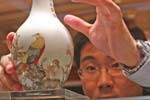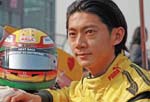Op-Ed Contributors
Debate: Urban congestion
Updated: 2011-04-12 08:00
(China Daily)
Tian Li
Problem lies deeper in economy
Traffic jams are becoming a common phenomenon in big cities across China. But urban congestion is not a problem for daily commuters alone. It reflects some deeper problems in the economy that deserve special attention.
The first is the contradiction between economic gains and social benefits. The development of the automobile industry has meant a lot of profits for carmakers and people and organizations in the sales chain down the line, and raised GDP to a great extent. But it has not benefited people as a whole much. Pollution and the waste generated by automobile plants are damaging our quality of life, while the roads built with public money are blocked by the ever increasing number of cars, causing serious inconvenience to people in general.
In some cases, the contradiction between economic profit and social benefits is unavoidable, and that is true of all countries. But the Chinese government has to take measures to deal with such problems, instead of ignoring them.
The solution to the congestion problem is increasing the spending on public transport with the idea of serving people's interests. But many officials look to GDP growth, not people's interests, when they invest in public services. Hence, public convenience is not necessarily part of the projects.
Another problem that traffic jams reflect is the authorities' attitude toward the pillar industries. Chinese decision-makers have been over-emphasizing the role of the pillar industries in economic development for too long.
They take it for granted that the auto industry helps develop other industries such as steel, machinery and construction.
But we know that economic growth cannot rely fully on the pillar industries for long. The pillar industries can help increase the economic growth rate in the short term, but after that they lose their importance and can even have a negative effect on the economy.
In today's world, it is not possible to build a healthy economy on the back of certain pillar industries alone. China, off all countries, should know this and stop depending heavily on the realty market and the auto industry if it wants to build a better and healthier economic structure.
The other important problem is regulation. Many Chinese experts say traffic jams in cities reflect the chaos in traffic management. It has a lot to do with drivers' disrespect for rules, too.
A primary cause of the traffic jams is lack of proper infrastructure, because most of the cities do not have sufficient number and length of roads to cope with the rapidly increasing number of cars. Sure, car-owners and drivers are partly to blame for that. But it is essentially the failure of law enforcement and urban planning agencies.
Compounding the problems are monopolies that infest the auto industry. Though the auto industry is just one part of the economy and traffic jams only one of the problems facing society, both point at deeper problems within the economy.
And it's time the authorities took proper measures to fix these problems.
The author is a professor at Harbin University of Commerce.
Specials

Share your China stories!
Foreign readers are invited to share your China stories.

Art auctions
China accounted for 33% of global fine art sales.

Waiting for drivers' seat
Lack of sponsorship appears to be why Chinese drivers have yet to race in a Formula 1 event